God grants liberty only to those who love it, and are always ready to guard and defend it.
—Daniel Webster—
Key point: America’s Founders showed us how to handle crises—and the importance of working to uphold and preserve liberty in the process. We need to heed and follow their example.
A streamlined version of this article is available here.
On August 2, 2019, the 243rd anniversary of the date that most of the signers of the Declaration of Independence affixed their names to America’s “birth certificate,” I published an article titled “Recapture the Founders’ Wisdom.” In it, my readers and I explored some of the priceless nuggets of wisdom the signers bequeathed to us us. The quotes we mined from history covered a variety of topics, and I would encourage you to read that entire article when you have opportunity.

Recently it occurred to me that today, in the midst of the coronavirus crisis the country now is facing, a significant number of insights highlighted in that article are extremely pertinent. The men who signed the Declaration had reasons to be fearful. Much was uncertain. The cause for which they were risking their lives and their possessions was not guaranteed to succeed, not by a long shot. Yet, they did not panic. They understood the value of liberty and the importance of good government. They believed legitimate government was accountable to the people and had to be limited. Its primary responsibility was to preserve and maintain the “unalienable rights” God gives the members of humanity, specifically the citizens of the country so governed.
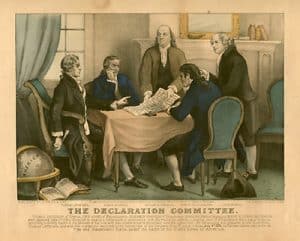
America’s Founders did not panic.
The formation and the ratification of the US Constitution would not occur until more than a decade later; but the delegates to the Constitutional Convention of 1787—some of whom had signed the Declaration—fashioned a government that overall, was consistent with the ideals set forth in the Declaration. This wasn’t true in every respect, because slavery remained; but as we have explored in previous posts, the Constitution pointed the country in the direction of eventually eliminating slavery.
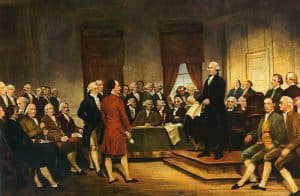
But I don’t want to get off track here. The Founding Fathers could have chosen security over liberty, but they did not. Instead, they risked everything, including their very lives, to establish a nation that upheld and protected liberty and freedom. In a letter to John Adams dated July 20, 1811, Dr. Benjamin Rush of Pennsylvania recalled events that had occurred 35 years prior.
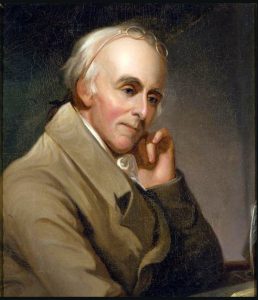
Do you recollect your memorable speech upon the Day on which the Vote was taken? Do you recollect the pensive and awful silence which pervaded the house when [a month later] we were called up, one after another, to the table of the President of Congress, to subscribe what was believed by many at that time to be our own death warrants? The Silence & the gloom of the morning were interrupted I well recollect only for a moment by Col: Harrison of Virginia who said to Mr Gerry at the table, “I shall have a great advantage over you Mr: Gerry when we are all hung for what we are now doing. From the size and weight of my body I shall die in a few minutes, but from the lightness of your body you will dance in the air an hour or two before you are dead.” This Speech procured a transient smile, but it was soon succeeded by the Solemnity with which the whole business was conducted.
The signing of the Declaration of Independence on August 2, 1776, therefore, was a momentous occasion, yet also a somber one. Everyone present was aware that he was placing everything at risk for the sake of independence. If the new nation lost the war, the British would, without question, hunt down and execute the men who were affixing their names to the document that day. Even so, as the Declaration states, they took their bold stand “with a firm reliance on the protection of Divine Providence.”
They meant this wholeheartedly. On July 14, 1776, Abraham Clark of New Jersey wrote to Elias Dayton, a friend of his who was a military leader in the American Revolutionary War,
Our Declaration of Independence I dare say you have seen. A few weeks will probably determine our fate. Perfect freedom, or Absolute Slavery. To some of us freedom or a halter. Our fates are in the hands of An Almighty God, to whom I can with pleasure confide my own; he can save us, or destroy us; his Councils are fixed and cannot be disappointed, and all his designs will be Accomplished.
On August 6, 1776, four days after August 2 signing of the Declaration, Clark wrote,
As to my title, I know not yet whether it will be honorable or dishonorable; the issue of the war must settle it. Perhaps our Congress will be exalted on a high gallows.…Nothing short of the power of God can save us…I think an interposing Providence hath been evident in all the events that necessarily led us to what we are—independent states.
In other words, Clark was saying that even though they were in the line of fire, they had a sense that they were where they were supposed to be, for the sake of a great cause. History would prove them right.

How the Wisdom of the Founders Can Help Us Today
Like the Founders, we also face a choice between what appears to be security (provided to us through government intervention in our lives), and independence, or liberty. Daily we are reminded of the needs before us. What we’re not reminded of regularly is the priceless value of liberty, and the cost of sacrificing it for the sake of security.
Liberty is priceless, and the cost of sacrificing it for the sake of security is incalculable.
Government has a role to play in addressing this crisis, of course. Yet it is all too easy for government to overstep its bounds. Moreover, some of our elected leaders, sad to say, wish to “restructure things to fit our vision.” So said Congressman James Clyburn (D) of South Carolina. Accordingly, Democrat House Speaker Nancy Pelosi and Democrat Senate Minority Leader Chuck Schumer are making demands for pet causes that have nothing to do with the crisis. They are attempting to hold hostage a coronavirus crisis relief bill, despite the urgent needs of Americans.
Watch Senator Tom Cotton of Arkansas shoot down Pelosi’s demands.
This is not to say the bi-partisan version of the bill was perfect. The wisdom of government’s coming to the aid of citizens and the private sector to the extreme extent the bi-partisan bill would authorize can be legitimately debated. What is not debatable is whether or not elected officials are right exploit a crisis by making unrelated demands that will reshape society.
How Important Is Liberty to You?
We need to be reminded of the value of liberty and of the cost of losing it. For these reminders, we can find no more reliable source than the Founders of our country. We cannot say they had no reason to fear when they signed the Declaration. We cannot say that they did not face a crisis or understand the risks they were taking. While the primary crisis we face today is different, theirs was equally real. In fact, the Founders actually have shown us how do deal with threats to liberty. Consider in this article twelve specific ways they worked together to establish a nation that would recognize and maintain the freedoms too many of us apparently have come to take for granted.
John Trumbull’s The Declaration of Independence
Go here for more information about this painting.
Let us heed and apply the following thirteen nuggets of wisdom from the following nine men1—
-
-
- John Hancock of Massachusetts,
- Thomas Jefferson of Virginia,
- Benjamin Rush of Pennsylvania,
- Benjamin Franklin of Pennsylvania,
- George Clymer of Pennsylvania,
- John Witherspoon of New Jersey,
- Samuel Adams of Massachusetts,
- John Adams of Massachusetts, and
- Roger Sherman of Connecticut.
-
We will allow these men to speak for themselves.
-
-
- Resistance to tyranny becomes the Christian and social duty of each individual….Continue steadfast and, with a proper sense of your dependence on God, nobly defend those rights which heaven gave, and no man ought to take from us.
- Some boast of being friends to government; I am a friend to righteous government, to a government founded upon the principles of reason and justice; but I glory in publicly avowing my eternal enmity to tyranny.
-
-
-
- Experience hath shewn, that even under the best forms of government those entrusted with power have, in time, and by slow operations, perverted it into tyranny.
- Does the government fear us? Or do we fear the government? When the people fear the government, tyranny has found victory. The federal government is our servant, not our master!
-
Temperate, sincere, and intelligent inquiry and discussion are only to be dreaded by the advocates of error. The truth need not fear them.
-
-
- They who can give up essential liberty to obtain a little temporary safety deserve neither liberty nor safety.
- When the people find that they can vote themselves money, that will herald the end of the republic.
-
A printer publishes a lie: for which he ought to stand in the pillory, for the people believe in and act upon it.2
-
-
- But what kind of society will we have if our responsibilities are set by man, and not by God?
- There is not a single instance in history, in which civil liberty was lost, and religious liberty preserved entire. If therefore we yield up our temporal property, we at the same time deliver the conscience into bondage.
-
If ye love wealth better than liberty, the tranquility of servitude than the animated contest of freedom – go home from us in peace. We ask not your counsels or arms. Crouch down and lick the hands which feed you. May your chains sit lightly upon you, and may posterity forget that you were our countrymen!
Government is instituted for the common good; for the protection, safety, prosperity, and happiness of the people; and not for profit, honor, or private interest of any one man, family, or class of men; therefore, the people alone have an incontestable, unalienable, and indefeasible right to institute government; and to reform, alter, or totally change the same, when their protection, safety, prosperity, and happiness require it.
The only real security that you can have for all your important rights must be in the nature of your government. If you suffer any man to govern you who is not strongly interested in supporting your privileges, you will certainly lose them.
Do Not Panic
Do not lose heart, but have courage. This isn’t a time to panic, but a time to follow the examples of these great men in American history…
…men whose actions have produced beneficial fruit we still are reaping today.
Copyright © 2020 by B. Nathaniel Sullivan. All rights reserved.
Note:
1We could cite many more insights than these thirteen and name many more men than these nine.
2We should realize, as did our Founders, that believing in a free press does not mean one permits an irresponsible press to get away with misinformation and outright lies.
top image credit: Dan Smith, the bell-tower atop Independence Hall
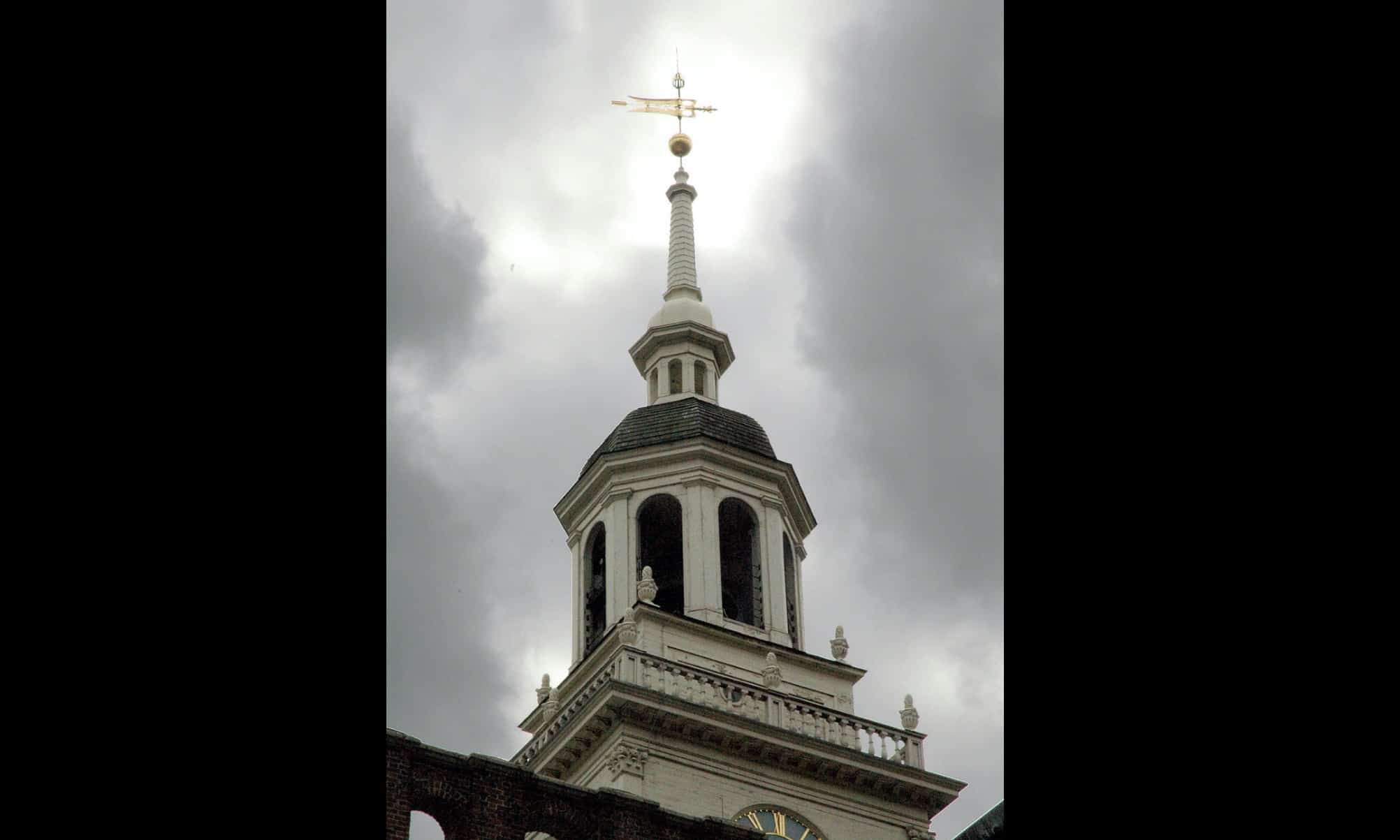

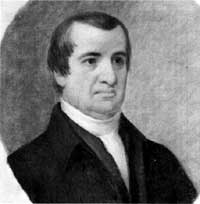

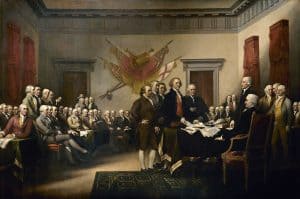
Be First to Comment